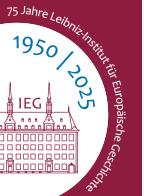Ausschreibungen im Detail
17.02.2025
HERMES Research Study Programme for Data Competencies
in the Humanities and Cultural Sciences
Offer
Funding of €3,500 (incl. VAT) per study is offered, which is awarded via research contracts (no direct employment relationship). The studies must be carried out by 15 October 2025, which corresponds to a maximum study duration of six months. The results must be available within this time frame and published digitally in order to be made accessible to the scientific community.
Researchers can apply individually or as a group for one or more of the study types. A combination of several study types is also possible, provided that the objectives and results are achieved.
What do we expect from you?
We are looking for projects that meet scientific standards and use qualitative research methods to analyse data. They should also develop innovative approaches to teaching data skills and promoting cultural change in the humanities and cultural sciences. In particular, we encourage interdisciplinary collaboration to integrate diverse perspectives and approaches. By creating collaborative learning and research spaces, new ideas and innovative solutions can emerge.
Why should you apply?
Participation in our funding programme offers the opportunity to communicate innovative research approaches and to open up new ways of dealing with data for a broader community. In addition to financial support for your outreach work, our funding programme will also give you access to the activities and databases of renowned institutions such as the Leibniz Institute of European History (IEG) in Mainz and other institutions involved in HERMES. Your work will contribute to the further development of data competencies and data cultures in the humanities and cultural sciences.
Eligible study types
- HERMES Data Analysis Study
The study aims to analyse historical data holdings of preserving institutions (GLAM) in order to demonstrate the use, acquisition and teaching of data skills in the historical humanities. The use of digital methods for data evaluation as well as the creation of analyses and reports as a basis for teaching concepts of data competencies are expected. In addition, potential uses and opportunities for improvement for historical questions will be identified. The results will be presented in a research report that includes formal descriptions and documentation of the data, taking into account historical source criticism, methodological approaches, potential uses and data visualisations in order to illustrate structures, characteristics, processes and results. The target group for this type of study is researchers working in a historical and data-orientated approach.
- HERMES Innovation
The aim of this study is to create innovative forms of access and utilisation for historical data collections of preserving institutions in order to promote the preparation and presentation of data. The study endeavours to gain insights into the effects and possible applications of the formats, tools or designs developed and to explore further usage scenarios and possible target groups. The results will be presented in a written concept that outlines new forms of access and utilisation for the selected data pool in terms of formal and content quality, provision, user information and visual exploration. The target group includes researchers with an interest in digital innovations as well as actors from the digitally oriented GLAM sector.
- HERMES Data Preparation
The aim is to publish quality-assured research data in order to increase the visibility of scientific achievements and make historical sources reusable for other researchers in accordance with the FAIR principles. It is expected that the datasets will be documented transparently and possible use cases for utilisation according to FAIR principles will be discussed. The target group includes researchers from the humanities and cultural sciences as well as the GLAM and infrastructure sector. We particularly encourage researchers who work with datasets in the HERMES network, from GLAM institutions or NFDI data resources to apply.
- HERMES Open Science
This type of study aims to impart data competencies through the documentation and dissemination of data-orientated methods in accordance with the Open Science concept. Practical examples of the implementation of Open Science, transparent documentation of research processes and an open licensing and publication strategy are expected. The results are practical examples of implementation, such as guidelines and webinars, which are permanently freely available, didactically prepared and orientated towards the Open Science principles. The target group includes in particular researchers from ongoing projects, preferably in the HERMES network, as well as those working with GLAM datasets or NFDI data resources.
Application
Applications in German or English language including
-
Exposé of the research project (approx. 500 words)
-
CV, references
-
list of publications
should be sent in a summarised PDF document to hermes@ieg-mainz.de by 24 March 2025 for a funding start date of 15 May 2025.
If you have any questions or require further information, please contact Dr Judit Garzón Rodríguez.
We look forward to your creative ideas and innovative approaches, as well as your positive influence on our handling of data.
The HERMES Network
HERMES, short for Humanities Education in Research Data and Methods, establishes places for learning, researching and networking where data competencies in the humanities and cultural studies are taught, further developed and critically reflected upon. HERMES designs and tests various innovative formats to fulfil this requirement.
In addition to the Leibniz Institute of European History, the University of Marburg, the Academy of Sciences and Literature in Mainz, Mainz University of Applied Sciences, the German National Library, the Herder Institute for Historical Research on East Central Europe in Marburg, the Technical University of Darmstadt, Darmstadt University of Applied Sciences and the Trier University are involved in HERMES.




